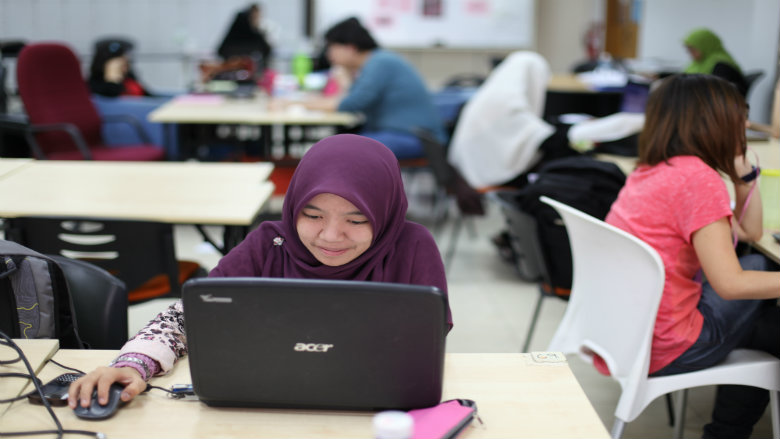Amitabha Mukherjee, World Bank Lead Public Sector Specialist, recently participated in a virtual learning exchange between Georgetown University students and Malaysia’s Ministry of Finance. In this interview, he shares his thoughts on the Bank’s role in sharing the Malaysia experience with the world.
Question: In what ways does Malaysia’s development experience offer practical models and solutions useful for other countries?
Amitabha: In my view, Malaysia’s performance over the last three decades in raising living standards, improving health and education outcomes, and generating a vibrant private sector offer many lessons for countries across the world. In practical terms, the capacity of Malaysia’s civil servants has contributed significantly to the development outcomes Malaysia has achieved. Civil service capacity and technical excellence is reflected in Malaysia’s continuing quest for excellence in service delivery and results monitoring. But for this to happen, it needs to be underpinned by effective and efficient budget formulation, budget implementation, civil service management, revenue collection and results monitoring. These are precisely the ‘how to’ issues that countries are grappling with. Many of Malaysia’s development solutions are therefore relevant for many countries.
Question: What can other countries learn from Malaysia on performance budgeting?
To budget and public financial management aficionados, Malaysia’s Ministry of Finance has long been known to be a generator of good practices in using budgets to reflect policy choices and generate measurable development results and outcomes. Other countries have been – and will be – interested in how the Ministry uses medium-term budgeting frameworks and linking it with results-based management.
Question: It must be very exciting to have university students from the US connect with you. What was it like and how did they respond to this virtual learning experience?
It was indeed exciting! We had students from Georgetown University’s Walsh School of Foreign Service participating. Many students asked penetrating questions to the presenter Koshy Thomas, Ministry of Finance Undersecretary and Director of Budget, and his panel of colleagues. We were all very pleased with the content of the presentation and even more pleased with the animated discussion that followed.
“It was particularly interesting to learn how the Ministry has implemented Public Finance Management reforms and how it transitioned from other approaches of budgeting (traditional, progressive performance, modified budgeting) to outcome-based budgeting in 2012.” Christian Michel Casulleras, Student, Georgetown University, Walsh School of Foreign Service
Question: Does the World Bank have experience in reaching universities in developing countries to share knowledge from other countries?
This session was a great example of the World Bank partnering with a leading University and a key Ministry (Finance) to craft and deliver a very well-received knowledge-sharing session. But this is only one example: the World Bank does reach out to universities across the world in many different ways. For example, in Russia, colleagues partner with universities to improve curricula, expose faculty and staff to development issues and solutions. Our colleagues from the Leadership, Learning and Innovation team have also developed massive open online courses in collaboration with universities, which are becoming a key element of the World Bank’s provision of public goods.
Question: With the World Bank Knowledge and Research Hub set up in Kuala Lumpur, what are some of the future plans for knowledge sharing?
First, with the resounding success of the virtual learning exchange, we look forward to having more conversations with Malaysia’s Ministry of Finance on an annual basis, and make this part of Georgetown University’s course on Good Governance and Capable States. Second, we will identify other areas and good practices where we could organize more learning sessions. Third, other peer-to-peer learning networks that the World Bank has nurtured like the Justice Peer-Assisted Learning (JUST-PAL) for Europe and Central Asia are excellent vehicles to share and showcase Malaysia’s rich development experience - with policy makers, civil servants and other stakeholders from across the world. In fact, we intend to invite Malaysia’s Ministry of Finance to the next JUST-PAL conference in summer 2016, where practitioners working on justice issues are struggling with budget cuts, can learn from Malaysia on how to manage resources more efficiently and generate results on the ground.

